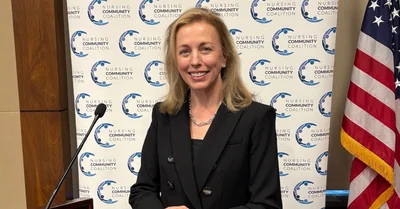Dear Secretary Sebelius:
As the Ranking Member of the Senate Committee on Finance and Chairman of the House Committee on Ways and Means, it is our responsibility to conduct oversight of the Centers for Medicare & Medicaid Services (CMS) and the federal health care programs administered by CMS. It is in this role that we are writing to express our continued concerns about the lack of transparency regarding the waiver process for insurance plans’ annual spending limits on benefits being directed by CMS’ Center for Consumer Information and Insurance Oversight (CCIIO).
The public has a right to know how the waiver applications are being handed out and to whom. The Administration’s refusal to make public the names of those companies and entities which have been denied waivers, and the reasons for why those waivers were denied, are prime examples of the lack of transparency which has become a hallmark of this Administration. The absence of full disclosure about both the approved and denied waivers prevents the American people the ability to know how the health care law is being implemented. It should be clear and publicly available which entities have to comply with the burdensome and costly requirements of the new health care law and which are receiving a temporary reprieve because they were aware of and navigated the waiver process. Accordingly, please indicate to us which entities have been denied a waiver and on what specific grounds.
We have heard from a number of small businesses in our states that were unaware that these waivers were even available, yet entities affiliated with labor unions have applied for and received waivers in droves. This raises questions about whether your Department has failed to conduct meaningful outreach to small businesses on this issue. Instead, it appears that small businesses need to have stumbled across information buried within www.healthcare.gov, the Administration’s website. We note, too, that this runs in stark contrast to the Administration’s efforts to publicize other areas of the new law, such as contacting 4 million small businesses via mail about a tax credit that few will be eligible for. Therefore, please tell us why the Administration decided that it was not important to provide information on how small businesses could escape the burdens of the new health care law in the same manner.
It has also come to our attention that while the Administration reports that more than 1,372 waivers have been granted, that number drastically understates the number of employers and entities that are exempt from some of the law’s requirements. Accordingly, please indicate whether it is true that if an insurance company obtains a waiver for more than one employer to which they offer coverage, the Administration counts this as just one waiver being granted. If so, please indicate how many distinct entities and employers are currently benefiting from a waiver.
Thank you for your immediate attention to these important questions. We look forward to receiving a response from you to each of these questions by June 10, 2011, so that the American people can understand how and why these waivers are being handed out.
Sincerely,
ORRIN G. HATCH
DAVE CAMP
Cc: Administrator Donald Berwick, MD, Centers for Medicare & Medicaid Services








